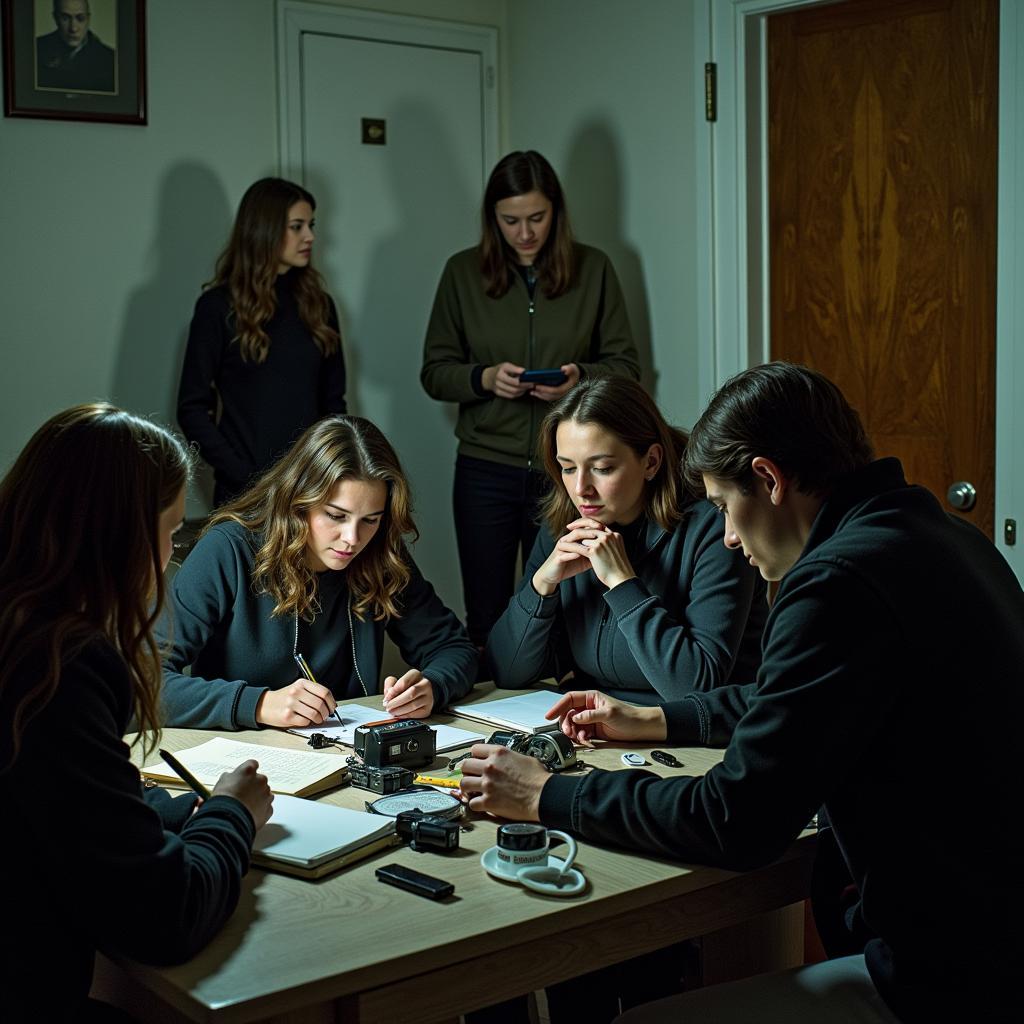“Research studies by outside parties” – a phrase often met with curiosity and perhaps a touch of skepticism. In the realm of paranormal research, where the veil between the known and unknown is thin, such studies hold a unique significance. But what exactly do they help with, and why are they so crucial?
Expanding the Scope of Paranormal Investigation
Paranormal research often faces limitations due to its very nature. Subjectivity, personal bias, and the elusive nature of paranormal phenomena can cloud judgment and influence results. This is where research studies by outside parties become invaluable. By bringing in fresh perspectives, methodologies, and expertise from different fields, we can:
- Objectify Observations: Outside researchers, unburdened by pre-conceived notions or emotional attachments to a case, can offer unbiased analysis of data and experiences.
- Strengthen Validity: Employing scientific rigor and established research protocols from fields like psychology, sociology, or even physics lends credibility and weight to paranormal investigations.
- Uncover Hidden Correlations: Interdisciplinary approaches can reveal unexpected connections. A physicist might find an electromagnetic anomaly at a site where a psychic senses a presence, potentially linking seemingly disparate phenomena.
- Minimize Confirmation Bias: Paranormal investigators, driven by a passion to prove the existence of the unknown, might unconsciously favor data that confirms their beliefs. Outside researchers act as a check against this bias, ensuring a more balanced approach.
 Outside Researchers in Paranormal Investigation
Outside Researchers in Paranormal Investigation
The Power of Diverse Perspectives
Imagine a haunting investigation. A paranormal team might focus on EVP recordings and electromagnetic readings. Now, consider an anthropologist joining the study. They could provide insights into local folklore, rituals, or historical events that might offer context to the reported activity.
Or, picture a study on psychic abilities. While a parapsychologist might focus on quantitative data from controlled experiments, a neuroscientist could use fMRI to study the brain activity of a psychic during a reading, potentially shedding light on the biological mechanisms involved.
Real-World Examples: Where Outside Research Makes a Difference
-
The Rhine Research Center: Founded by J.B. Rhine, a pioneer in parapsychology, this institution has long collaborated with statisticians and psychologists to design and analyze experiments on extrasensory perception (ESP) and psychokinesis (PK). Their rigorous methodologies have contributed significantly to the scientific study of paranormal phenomena.
-
The Society for Psychical Research: Established in 1882, the SPR boasts members from various backgrounds, including scientists, academics, and those with personal experiences of the paranormal. Their research spans diverse areas like hauntings, near-death experiences, and mediumship, often involving collaboration with external experts.
Seeking Answers Through Collaboration
Research studies by outside parties are not about disproving or validating personal beliefs. They are about adding layers of understanding to complex phenomena that often defy easy explanations. By embracing a collaborative spirit and seeking insights from diverse fields, we move closer to unraveling the mysteries of the paranormal world.
While some aspects of the paranormal might forever remain enigmatic, research studies by outside parties offer a crucial pathway to illuminate the shadows, separate genuine phenomena from misinterpretations, and ultimately, broaden our understanding of the universe and our place within it.
FAQ
1. Are research studies by outside parties always scientific in nature?
Not necessarily. While scientific methodologies are often employed, some studies might utilize qualitative research methods, historical analysis, or anthropological approaches, depending on the nature of the phenomena being investigated.
2. Do outside researchers always agree with the conclusions of paranormal investigators?
No. In fact, disagreement and debate are encouraged as they foster critical thinking and lead to more robust research. The goal is not to reach a unanimous consensus but to explore all possibilities with an open mind.
3. Where can I find examples of research studies by outside parties on paranormal phenomena?
Reputable organizations like the Rhine Research Center, the Society for Psychical Research, and the Parapsychological Association often publish their findings in journals, books, and online databases. You can also find research articles on specific topics through nursing research databases, research databases for students, or general academic databases like JSTOR.
4. Can anyone participate in research studies by outside parties on paranormal phenomena?
Some studies might have specific criteria for participation, but many welcome individuals with an interest in the paranormal, regardless of their background. You can often find calls for participants on the websites of research organizations or through online forums dedicated to Paranormal Research.
5. What is the ultimate goal of research studies by outside parties on paranormal phenomena?
The goals can vary depending on the specific research question, but ultimately, most studies aim to contribute to a better understanding of the paranormal, whether by providing evidence for its existence, exploring its potential mechanisms, or investigating its impact on individuals and society.
Do you have other questions about the paranormal?
We encourage you to explore our website for more insightful articles on a variety of paranormal topics. You can find articles on Fresno State research database, Lone Star research database, and a free research articles database.
If you have specific questions or need assistance with a paranormal matter, please don’t hesitate to contact us. Our team of experts is available 24/7 to provide support and guidance. You can reach us by phone at 0904826292, by email at research@gmail.com, or visit us at No. 31, Alley 142/7, P. Phú Viên, Bồ Đề, Long Biên, Hà Nội, Việt Nam.